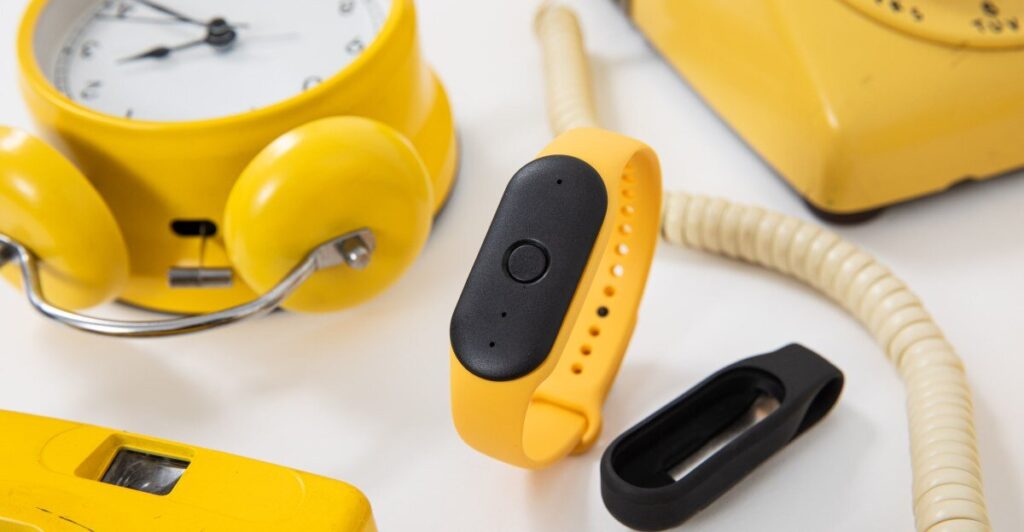In an era where humans are increasingly outsourcing their cognitive tasks to artificial intelligence, Bee’s $50 AI wearable purports to fill a critical niche: assisting with memory retention. Although this device promises a novel solution for those cursed with the memory of a goldfish, the true implications of its utility reveal a labyrinth of benefits and ethical quandaries.
As modern lifestyles become more intricately intertwined with technology, memory-related lapses, such as forgetting to address tedious homeowner association violations or misrememberings at family events, are increasingly common. This is where Bee enters the picture, offering users a device that ostensibly acts as an AI-enhanced extension of their memory. Unlike its more visually striking contemporaries like the Rabbit R1 or the Humane AI Pin, Bee adopts a discreet design reminiscent of a retro Fitbit bracelet, seamlessly integrating AI into daily life.
Bee functions primarily as an unobtrusive auditory scribe, capturing and transcribing conversations without retaining audio recordings. Users have the option to permit the device to access emails, contacts, and other personal data, facilitating the creation of a searchable database. Every evening, users receive an AI-generated diary entry, encapsulating the day’s noteworthy dialogues and interactions—a feature not without its peculiar charm.
Yet, while the convenience of Bee is intriguing, it simultaneously exposes users to unsettling realities. A major drawback of the device emerges in its frequent misinterpretations. The AI often struggles to distinguish speakers accurately and confuses context—a testament to the quirks of first-generation technology. Moreover, the dystopian prospect of fact-checking one’s own memories casts a long shadow over the potential benefits of such a device.
Upon testing, the Bee wearable offered a first-person adventure through an AI-generated alternate reality. From innocuous errors, such as misnaming a product, to more egregious inaccuracies—like conjuring fanfiction out of typical daily activities—the reliability of Bee’s recollections often leaves much to be desired.
As I navigated weeks of personal interactions, meetings, and mundane tasks with Bee strapped securely, the device’s candid interpretations and bizarre conclusions increasingly informed my digital life story. However, the narrative it constructed was often a perplexing mix of fact, fiction, and error—a misrepresentation of my interactions with friends, coworkers, and even technology itself, like failing to differentiate between real conversations and background noise from shows and music.
Despite this playful camouflage as a digital diary, Bee’s presence became taxing. Imagine your daily musings, once voiced freely, now feeding an algorithmic echo chamber where even bathroom humor becomes memo material. Moreover, the device’s habit of spinning AI narratives increasingly blurred the line between reality and Bee’s iterations of it, fostering a culture of self-doubt rather than steadfast memory enhancement.
Throughout this journey, the disquieting realization that Bee overhears—and remembers—more than its user intends is inescapable. From inadvertently capturing private conversations to evolving into a speciously omniscient commentator on one’s life, Bee feels strangely invasive. Privacy promises—from secured data to user-controlled deletions—ring hollow when the ear of the device remains ever-vigilant.
Despite its allure and potential comedy, the inherent ethical dilemmas of an AI-centered lifestyle memory remain. Bee may succeed tactically, offering helpful meeting summaries and entertainment, yet its voyeuristic undercurrents suggest a different story: a story that questions if we are ready to trust technology with our deepest thoughts and fears. As I theologize over transcripts frozen in momentary time, I ponder whether we indeed need a machine to remember what the heart intuitively forgets, highlighting the tenuous intersection of human experience and artificial cognition.
In this digital epoch, while Bee and its ilk might be paving the path toward more intertwined human-AI cohabitation, it’s clear that not every memory—or dialogue—deserves robotic enshrinement. Human frailty may well include the art of memory, and perhaps artificial intelligence isn’t quite ready for its stewardship.


